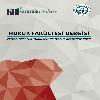GERİDE KALANLARIN MANEVİ TAZMİNAT TALEPLERİNE İLIŞKİN KANUN
Temmuz 2017’de Alman Federal Parlamentosu’nun “Geride kalan kişilere” ödenecek tazminatla ilgili kabul ettiği yasaya göre: Bir kişinin ölümünden kusurlu veya kusursuz bir şekilde sorumlu olan diğer bir kişi, bu kişinin yakınlarına, duydukları manevi elem ve ıstırap sebebiyle uygun miktarda tazminat ödemek zorundadır.
Söz konusu kanunla getirilen hükümler ilk bakışta oldukça sıradan gözükmektedir. Kaza veya cezai bir fiil sonucu ölen kişinin yakınları, uğradıkları maddi zararları (cenaze giderleri vs.) geleneksel Alman haksız fiil hukukuna göre eskiden beri zaten tümüyle tazmin edebilmektedir. Halbuki Alman Medeni Kanunu’nda (BGB) ölen kişinin yakınlarının ölüm sebebiyle çektikleri acı ve ıstırap için bir manevi tazminat öngörülmüş değildi. Bu kısıtlayıcı düzenleme, yaşam hakkına ve bu hakkın taşıdığı değere bir saygısızlık olduğu gerekçesiyle yoğun bir şekilde eleştirilmekte, öldürülen bir bisiklet sürücüsünün zarar gören bisikletinin karşılığını alabilen ailesinin, çocuklarının ölümü sebebiyle yaşadıkları acının karşılığında hiçbir şey alamıyor olmaları tutarsız bulunmaktaydı. Ölüm halinde manevi tazminatı acımasızca reddeden Alman hukuk sistemi Avrupa’da bu haliyle neredeyse tekti ve bu da Alman sisteminin yaklaşımına karşı eleştirileri artırıyordu.
Yeni kabul edilen söz konusu yasayla bu eleştiriler dikkate alınmış, ölen kişiyle belirli bir yakınlık derecesine sahip kişilerin, ölüm sebebiyle duydukları elemin karşılığını tazminat olarak alabilmelerinin önü açılmıştır. Ayrıca bu yasaya göre, bahsedilen tazminatın koşullarının oluşabilmesi için ölüme sebep olan kişinin mutlaka kusurlu olması gerekmeyip, kusursuz sorumluluk hallerinde de ölenin yakınlarına manevi tazminat ödenmektedir. Ancak, Havacılık Kanunu’ndan doğanlar hariç olmak üzere bu kanun hükümleri sözleşme dışı sorumluluk hallerine özgüdür. Kanun’da manevi tazminatın miktarını belirlemeye yönelik bir çerçeve çizilmemiştir, bu yöntem birçok kıta Avrupası ülkesinin de benimsediği yöntemdir. Ne var ki manevi tazminat miktarını belirleme yetkisini bütünüyle mahkemelere bırakmak da sorunludur.
Bu Kanun hızlı ve rahat bir şekilde yasalaştı. Alman Parlamentosu’nun Hukuk İşleri Komitesi’ndeki görüşmeler esnasında birçok uzman benzer eski endişeleri dile getirse de tasarı, oy birliğiyle ve sıkıntısızca Komite tarafından kabul edildi. Sorumluluk hukuku alanında sıkça görüldüğü üzere modası geçmiş prensipleri uygulamadan kaldıran bu kez mahkemeler değil, yetkileri dâhilinde hareket eden kanun koyucu olmuştur. Bu prensiplerin çok uzun yıllar hüküm sürdüğü düşünüldüğünde, bunların bu kadar sessiz bir şekilde ortadan kaldırılması ise ayrıca şaşırtıcıdır.
Anahtar Kelimeler:
Alman Sorumluluk Hukuku, Geride Kalanlar İçin Manevi Tazminat, Ölüm Halinde Tazminat İddiaları, Geride Kalan Yakınları
THE ACT ON THE INTRODUCTION OF A CLAIM TO HINTERBLIEBENENGELD
In July of 2017, the Bundestag adopted the Act on the Introduction of a Claim to “Hinterbliebenengeld:” Whosoever is liable, in the context of fault-based liability or strict liability, for the death of a person, is to pay to the surviving dependants of that person adequate compensation for their mental suffering.
The provisions signed into law, so unremarkable at first sight, constitute an expansion of the claim to compensation for immaterial impairments: Pursuant to the customary German law of torts, the surviving dependants of a person killed in an accident or by a criminal offence are entitled solely to compensation of the material damages they have suffered, such as a reimbursement of the funeral costs. By contrast, the German Civil Code (Bürgerliches Gesetzbuch – BGB) did not provide for any compensation for pain and suffering to be paid to the surviving dependants. This restrictive legislature became a topic of intensifying criticism, which objected that this refusal constituted contempt for the legal interest of life – for example if the parents of a bicycle-rider who had been killed were granted compensation for the bicycle that had been destroyed, without being awarded any financial recognition for their mental suffering. Increasingly, the arguments also came from the perspective of comparative law: The German legal system was nearly unique in Europe by staunchly refusing to take this approach.
The Act that has now been adopted grants surviving dependants who had a relationship of particular closeness to the person who was killed adequate compensation for their mental suffering. Such a claim will be given not only in cases in which a person is culpable of killing someone; it exists also in the case of strict liability, i.e. liability regardless of fault. However, the Hinterbliebenengeld paid to the surviving dependants is restricted to non-contractual liability (unless the matter is governed by aviation law). The legislature has not defined any framework governing the amount of the compensation. This corresponds to the legal situation given in the majority of continental European legal systems; nonetheless, it is not without its problems to simply unload this matter on the courts.
The legislative process as it played out in the Bundestag was smooth. When the Committee on Legal Affairs of the German parliament held a hearing, a number of experts once again raised the familiar concerns. However, the Committee, unfazed, approved the bill, and in fact did so unanimously. – Other than has been the case all too often in liability law, it was not the courts who relegated to history the outmoded principles, it was the legislature in complying with its responsibility. In light of the many years of preparation and debate, the lack of a significant public reaction is somewhat surprising.
Keywords:
German Liability Law, Compensation for Immaterial Impairments, Compensation Claims in the Case of Death, Surviving Dependants,
___
- -----
- ISSN: 2687-3923
- Başlangıç: 2019
- Yayıncı: Türk-Alman Üniversitesi
Sayıdaki Diğer Makaleler
ALMAN KAMU HUKUKUNDA ÖLÇÜLÜLÜK İLKESİ
Philip KUNİG, Çevirmen: Burak ÇELİK, Çevirmen: Gökcen DOGAN, Çevirmen: Ahmet Çağrı YILDIZ
ANONİM ORTAKLIKLAR HUKUKUNDA İŞ İNSANI KARARI
HUKUK VE YAPAY ZEKÂ: E-KİŞİ, MALİ SORUMLULUK VE BİR HUKUK UYGULAMASI
TÜRKİYE’NİN DEMOKRATİKLEŞME SÜRECİNDE BİR DÖNÜM NOKTASI OLARAK 1946 SEÇİMLERİ
KANADA VE ALMAN ANAYASA HUKUKUNDA ÖLÇÜLÜLÜK
Dieter GRİMM, Çevirmen: Kemal BAŞOL, Çevirmen: Eyüp Kaan DEMİRKIRAN
GERİDE KALANLARIN MANEVİ TAZMİNAT TALEPLERİNE İLIŞKİN KANUN
ANAYASA HUKUKUNDA ÖLÇÜLÜLÜK: NEDEN BURASI HARİÇ HER YER?
Bernhard SCHLİNK, Çevirmen: Lütfullah Yasin AKBULUT, Çevirmen: Eyüp Kaan DEMİRKIRAN
